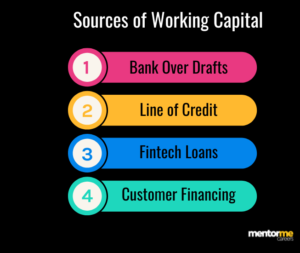Last updated on February 9th, 2024 at 02:52 pm
So, you are getting ready for the final round of technical interview in an investment banking firm, and you don’t know what to expect? In this article I will try my best to cover all the important capital market interview questions with high probability of being asked.
Capital Market Interview Questions
Now, I will try divide these capital market interview questions into multiple sections so that you can test your self accordingly for different kinds of topics .
Basic Capital Market Interview Questions
First of all think of these basic capital market questions, like warm up questions. Something like, testing you whether it’s worth the interviewers time or not. While, the questions I am about to list might give you an impression that these are too easy. However, a word of caution for you, seventy percent will get rejected right here itself.
What do you understand by Capital Market?
Now, let me guess! You think its easy? Take a moment to frame your answer.
Now, I will frame the correct type on answer that would ensure success. So, here it goes! Capital market is a broad term is a market which includes you as an investor, the regulators like SEBI, Exchanges like NSE. Also, at the same time includes asset managers like mutual funds. While the underlying asset includes bonds, equities and instruments like derivatives.
What is a mutual fund?
Another easy Capital Market Interview Questions, Yet difficult.
The answer if done correctly should sound like this! A mutual fund is a pooled investment vehicle, structured as a trust with the asset management company providing it the fund management service. But in exchange for a asset management fee, usually one percent in case of equities.
What is a derivative?
Another place, where you might just answer very casually. So the answer to this Capital Market Interview Questions like this!
A derivative, is a hedging instrument deriving its price from an underlying like an index(NIFTY50), currency(USD/INR), or commodities like gold and silver.However, derivative instruments vary depending on the need. For example;
- Firstly, in case of customised contracts they are called as forwards
- Secondly, in case of standardised contracts you have futures traded in exchanges
- Thirdly, if you just want pay offs, its called as options
Also, there exists creative derivative instruments like CDO’s, MBS etc.
What is an Index?
So, make sure not to just run away in your Capital Market Interview Question answers with this one.
An, Index is the consolidated or collective representation of the performance of multiple stocks. Which is categorised according to either;
- Firstly, similar sectors
- Secondly, similar size or liquidity
- Thirdly, a specific region or country.
- Finally, a theme
Now, generally index is calculated using the following methods
- Price weighted
- Float adjusted market cap weighted
- Equal price weighted
What do you understand by a Bond?
So, I know a lot of you have never exposed yourself to fixed income, as much as equity. While, it is more easy than it looks.
So, a fixed income security is a contract similar to a loan that you take. While, the only difference is that instead of you borrowing, it can be either a government or a corporation. For example; you can see below that the bond is of $100 and in return you as an investor earn $4.5 Periodically for 6 years. At the same time, you purchase the bond at a price lower than 100. Which means technically put, you are buying the bond at a discount.

Now, extending this discussion further, there are various types of bonds depending on how you get paid.
- Firstly, if you get paid just like above then it is a plain vanilla structure.
- Secondly, what if you get paid all the interest of 4.5 on year 6 itself and no payments in between. Then its called a bullet payment structure.
- Thirdly, if there is no coupon in between and the only appreciation you get is from -90 to 100. Well then its called a zero coupon bond.
And, that’s more than enough for the Capital Market Interview Questions to answer in the interview.
Advance Questions
So,are you warmed up enough? And if you have answered or you somehow knew the Capital Market Interview Questions reasonably well, then you are ready for the next leg of advance capital market interview questions.
What is trade life cycle?
So, this question will never be the deciding factor for your interview. While, the reason is that this a process related question. So a basic brief answer is good enough here.
Now, trade life cycle is basically the entire journey from the point of initiation of the trade at the front office level. From there it moves to middle office for trade confirmation. Following on, once you confirm the trade, then it flows to trade matching and reconciliation.
If during a trade, the customer wants to borrow a stock? How would the broker approach it?
Now, this is a trick question. Even though you have never worked in IB operations but logic is necessary. So, I am talking about borrowing a security, so that means that stock and bonds can be borrowed. Yes! But from whom?
- Either, the broker himself can lend the security from his own inventory
- Secondly, from other customers of the broker.
- Finally, from the custodian who in fact holds securities of all.
What do you understand by SWIFT?
So, very low chance of this question being asked, but just remember all it means is an identification number. Every bank account globally gets identified using a bank and customer code.
What do you understand by ex dividend date?
Now, that’s not a very difficult question but mostly a lot of candidates are not aware of its practically meaning. So, to understand ex dividend date, you also need to understand cut off date. A cut off date is the date before which you need to invested in the stock in order to be eligible for getting dividends. While ex dividend is that date on which dividend gets paid, and the stock stars trading without the dividend.
What is AML & KYC?
Again, not a fate deciding question but you must understand the basics. So, with the growth of digital transactions, including cryptocurrencies knowing and mapping customers has become very very important. Hence, Anti Money laundering and know your customer process getting strictly followed.
Conclusion
So, I hope you found these Capital Market Interview Questions useful for your preparation. Remember interviews are lost due to basic questions and never advance questions. If you need any more assistance with your investment banking preparation then feel free to reach us out.



